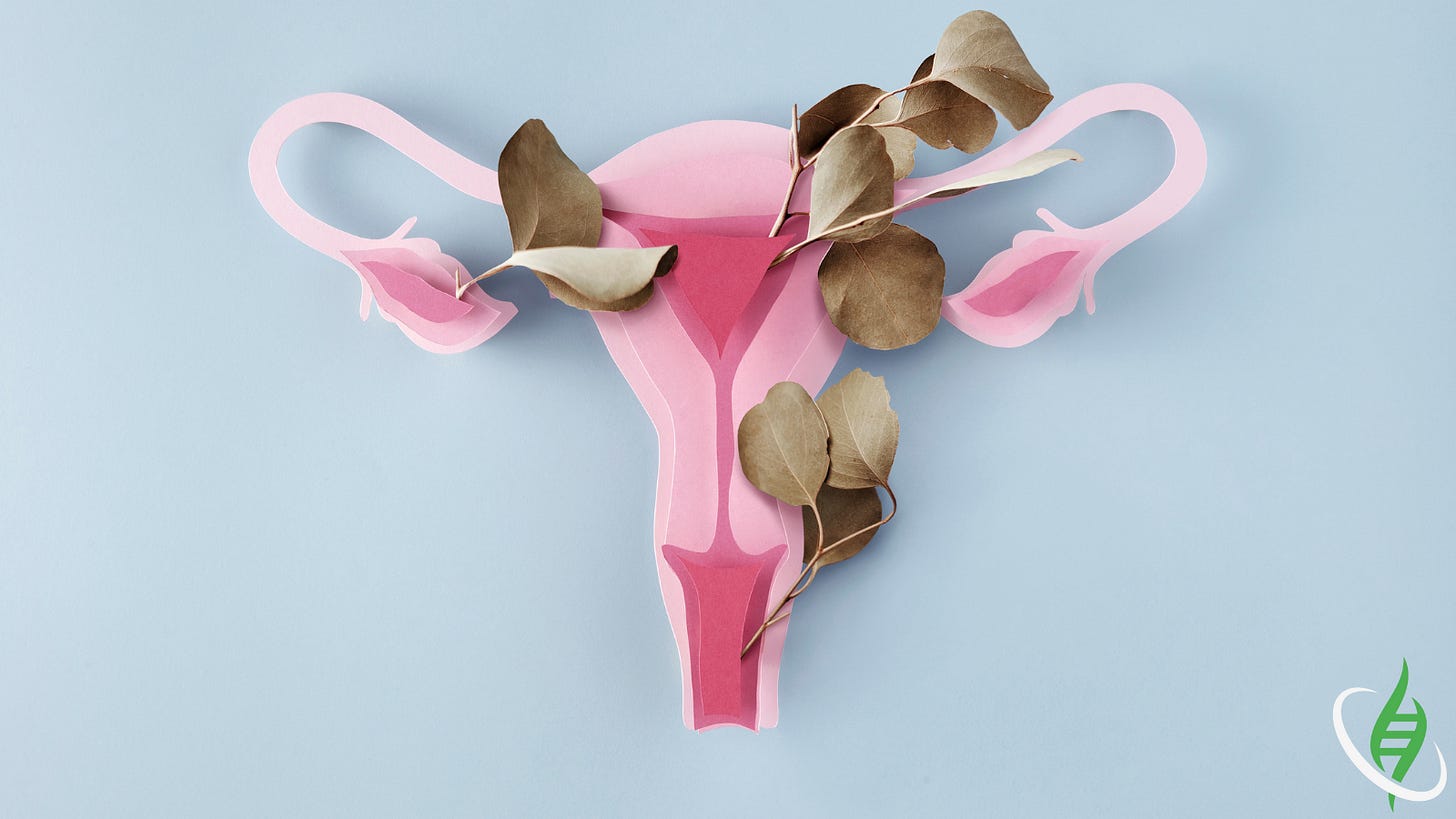Introduction:
What if the keys to your health and longevity were hidden in your genes? Recent groundbreaking research has unveiled how the genetic factors that govern ovarian aging are also linked to cancer risk and even influence the mutation rates passed to the next generation. Led by Stasa Stankovic and an international team of scientists, this study reveals how understanding these genetic connections can unlock new ways to improve women’s health and longevity. Let’s explore what these findings mean for us and the future of personalized healthcare.
The Genetic Code Behind Ovarian Aging:
Women’s reproductive lifespan is largely determined by the timing of menopause, and this study shines a light on rare genetic variants that play a crucial role in when this happens. Ovarian aging isn’t just about fertility; it has profound implications for overall health. Genes like ZNF518A were found to influence not only the timing of menopause but also cancer susceptibility, particularly in hormone-sensitive cancers such as breast and prostate cancer.
So why does this matter? The earlier a woman experiences menopause, the more likely she is to face health challenges, including a higher risk of developing certain cancers. But understanding these genetic pathways offers a potential intervention point.
Application in Longevity and Healthspan:
Imagine if we could develop therapies that target these genetic pathways, delaying ovarian aging and extending healthspan—helping women stay healthier for longer. Researchers now suggest that variants in genes like SAMHD1 and BRCA2, known for their roles in cancer, are also critical to ovarian aging. By identifying these risk genes early, women could be empowered to take proactive steps for better health, whether through lifestyle adjustments, preventative screenings, or new therapeutic interventions.
Personal Health Strategy:
Incorporating genetic screening into regular healthcare could soon become a cornerstone for women wanting to extend their reproductive years or mitigate health risks. By understanding one’s genetic predisposition, personalized treatments could include hormone replacement therapy tailored to an individual’s genetic risk profile, fertility preservation methods, or lifestyle recommendations that delay menopause and reduce cancer risks.
How DNA Repair Genes Tie Ovarian Aging to Cancer:
One of the most fascinating aspects of the research is how genes involved in DNA repair are at the heart of this connection. Seven of the nine genes identified in the study, including BRCA1, BRCA2, and CHEK2, are vital for repairing damaged DNA. Their mutations accelerate ovarian aging, making women more susceptible to cancer. This opens the door for healthcare providers to look at ovarian aging as a marker for broader health risks.
What’s more, the researchers found that mutations in SAMHD1, a gene linked to a variety of cancers, were associated with delayed menopause. While this delay in ovarian aging might sound beneficial, it comes with a higher risk of cancers such as breast and prostate cancer.
Application in Cancer Prevention:
Armed with this genetic insight, healthcare could shift toward a more preventive model. For example, women identified with these high-risk genes could benefit from earlier cancer screenings, personalized prevention plans, or novel treatments that aim to reduce cancer risk while preserving ovarian function. It’s about moving from reactive care to proactive wellness strategies.
The Legacy of De Novo Mutations:
Another surprising finding from the study was how early ovarian aging can lead to a higher rate of de novo mutations (new mutations not present in the parents) passed down to offspring. These mutations could influence the health of future generations, potentially contributing to developmental disorders or psychiatric conditions.
For women at high genetic risk of early menopause, this insight could reshape family planning decisions. Couples may consider having children earlier or exploring genetic counseling options to understand potential risks to their future children.
Application in Reproductive Health:
This finding could revolutionize how we think about reproductive health. Clinics may soon offer comprehensive genetic risk profiles to help women make informed decisions about the timing of parenthood. Additionally, interventions like egg freezing or IVF could be tailored to minimize the risk of passing on harmful mutations, ensuring healthier outcomes for both parents and future generations.
A New Frontier in Cancer Therapy:
Lastly, the link between ovarian aging genes and cancer could lead to breakthroughs in cancer treatment. For instance, researchers believe that targeting genes like SAMHD1 could help develop therapies that not only slow ovarian aging but also prevent certain types of cancer.
Imagine a future where therapies that modulate ovarian aging also reduce cancer risk—one treatment addressing multiple aspects of health and longevity. By focusing on the genetic pathways that regulate both reproductive aging and cancer, scientists may be able to create personalized therapies that extend healthspan while lowering the risk of age-related diseases.
Practical Insight for Longevity Clinics:
Longevity clinics could incorporate genetic testing as a routine part of their assessments, offering women targeted strategies based on their specific genetic risks. These could include personalized hormone therapies, cancer prevention protocols, or lifestyle interventions aimed at delaying menopause and improving overall health outcomes.
Conclusion:
The findings from this landmark study underscore the importance of genetics in shaping both our reproductive health and our overall longevity. By identifying key genetic markers that influence ovarian aging, cancer risk, and mutation rates, we are now closer than ever to developing personalized health strategies that can extend not just our lifespan but our healthspan as well.
The future of women’s health could be one where proactive, personalized interventions based on genetic insights become the norm—allowing us to stay healthier and live longer. As we continue to understand the genetic basis of aging, these findings will play a pivotal role in shaping the next era of personalized medicine.
Credits:
This article is based on the study Genetic links between ovarian ageing, cancer risk and de novo mutation rates by Stasa Stankovic, Saleh Shekari, Qin Qin Huang, and colleagues, published in Nature. You can read the full study here.





